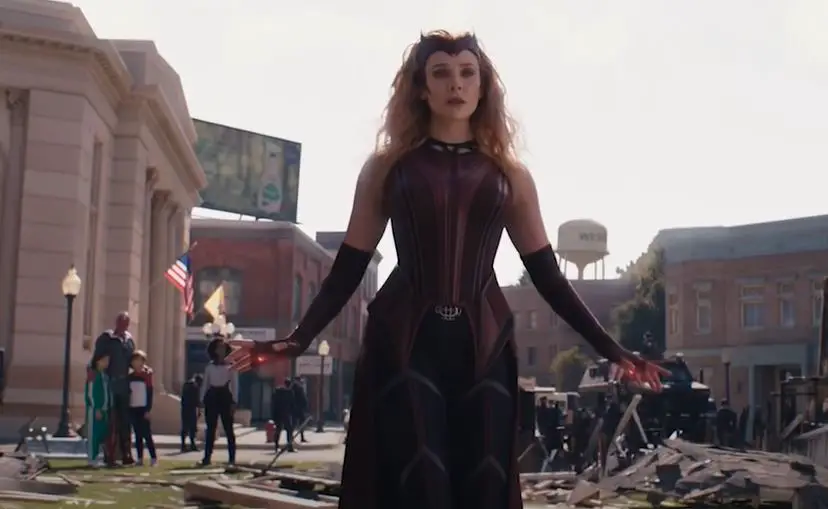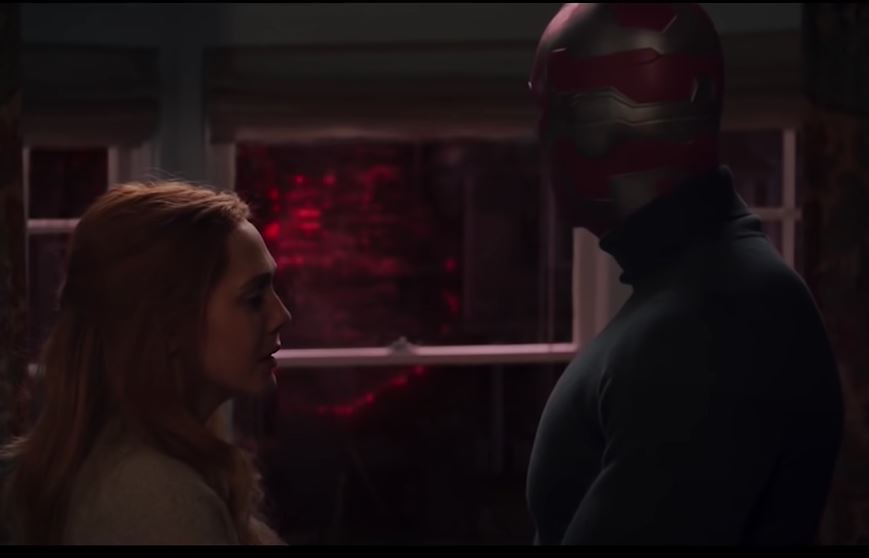Having now watched it, I can understand why WandaVision director Matt Shakman spoke about expecting some disappointment in the finale. While his comment was clearly aimed towards the theories predicting/expecting everything from Mephisto to Doctor Strange to Reed Richards to Magneto to show up and play a role in this finale episode, I can also see how fan disappointment could extend to the nature of WandaVision itself.
For all the bold moves this show made in comparison to the established MCU formula, it was this formula that made the boldest ask of fans. Not just because WandaVision ultimately fell back on familiar MCU tropes, but also because it is asking us to be patient with seeing whether these plot points really ended this way or were just meant to lead into other shows and movies that will more properly explore them.
Regardless of whether you liked the finale or not, there was a lot here that the audience will find disappointing. Does that make the finale, or WandaVision as a whole, disappointing? I don’t think so. This was not the best episode of the show, but it worked well enough.

To start with, there were too many plot points WandaVision either handwaved away or resolved quite lazily. Director Hayward’s motivations are never really explained in anything resembling a reasonable way, and then he gets arrested for…reasons. There is no real satisfying explanation for why he was so obsessed with Wanda and Vision to the point that he took the actions he did, or why we should think he was wrong. SWORD in general ended up feeling not quite pointless but definitely disappointing.
Monica’s season-long arc grieving for her mother and developing powers leads to one scene stopping bullets and a pretty terrible line attempting to absolve Wanda of the harm she caused the residents of Westview. Darcy only shows up to crash an ice cream truck. Pietro looks like Evan Peters for no real reason at all, and his character ultimately amounts to a dick joke.
Some of this (Monica especially) was most certainly slated to play out this way as part of longer character arcs spanning multiple shows and movies. Is that enough to justify how things played out in WandaVision? I don’t know, it is an open question.
I expect this to be a pattern across all of the Disney+ Marvel shows, especially since we should have multiple shows releasing before the next MCU movie comes out. Each will have their share of plot points and character arcs that belong to ongoing stories not neatly resolved within a particular season. Hopefully Marvel will learn from what people do and do not like about WandaVision, what did and did not work with the plot progression.
But, again, the possibility of future payoff does not explain all the criticisms. WandaVision bit off a bit more than it could chew and was left with a final episode that had to rush everyone through the downfall of the Hex.
And ultimately, there is no way to handwave how easily everyone apparently absolved Wanda of what she did in Westview.
Monica telling Wanda that the residents of Westview “will never know what you sacrificed for them” was clearly meant to rationalize her pain as equal to the pain she caused everyone else. I maybe could have bought into such an argument before the finale. Not really, but I would listen. Having the residents tell us how they suffered, and their type of suffering, makes Wanda’s sacrifice pale in comparison to the suffering which created the family she sacrifices.
I get it. I mentioned last week how Wanda has arguably suffered more than any other major MCU character. She has lost so many loved ones that her decision to give up Vision and her children by ending the Hex was an important moment of growth. She may finally be learning to properly cope with her losses. It is an important, satisfying cap to Wanda’s arc throughout the season.
The problem comes when WandaVision prioritizes her arc over everyone she has hurt to an extreme degree. As if Wanda had not enslaved an entire town, stolen their lives, infected them with her grief, and left them to have to pick up the pieces afterwards.
Wanda simply walking away from all this was…baffling. One of my big criticisms about Captain America: Civil War comes from the extreme reaction to Wanda accidentally destroying part of a building and how she became the scapegoat for all the destruction superheroes had caused across the MCU to that point. If anything would cause such a reaction, though, wouldn’t THIS be it? Wouldn’t the fact that someone as powerful as Wanda could enslave an entire town and resist basically every human effort to stop her lead to world governments wanting her contained immediately?
Instead, no one seemed to care.
I would not be surprised to see a hunt for Wanda in the movies and shows which follow but they could have set up that type of scenario here at the end of WandaVision. Instead we saw another example of how non-powered people in superhero universes are deemphasized and inconsistent regarding their reactions to the powered characters around them. This is why movies like Civil War struggle to work for me, and why agencies like SWORD and SHIELD are never particularly interesting to me. Marvel really struggles to manage consistency with their role as well as the way people react to everything they see and experience.
I do not want to come across too negatively, because WandaVision generally did a good job delivering satisfying ends to its character arcs. Wanda does begin letting go of the past and coping with her grief. Hex Vision comes to terms with who he is and has a satisfying goodbye scene, but not before planting the seeds for White Vision to eventually remember who he is. I loved the ends for both of them.
The final goodbye scene was beautiful, and indicative of everything WandaVision has done right throughout the season. Whenever an episode boiled down to something like this, where Wanda and Vision end up in a room talking through an emotional moment, they always nail the moment. It was important to fall back and place the emotional burden of the final moment onto the shoulders of Wanda and Vision.

Their respective battles against Agatha and White Vision are also excellent, with clever ends that buck the trope of simply overpowering your opponent. Yes, they spend the majority of the episode locked in your typical big budget spectacle battles, but the resolutions were far better than that.
The Visions ending on a debate over a philosophical question was fitting in every way. Not just for the philosophy lesson, but the nature of the specific question about what makes someone or something retain who or what they are. And while some may wonder how Wanda suddenly knew how to use magic runes, I can easily imagine that she just paid attention to the runes Agatha used in her basement.
Speaking of Agatha, this episode solidified her as one of the better villains in the MCU. While she will not take on her comic role as Wanda’s teacher (not yet, anyway), she still ended up helping Wanda become more powerful, both with her powers and as a person. She remained an absolute delight all the way to her final scene, and it was interesting to see a villain who did not present a threat because of her power level but because of her intelligence and experience.
For all the attention and theories paid to everything besides the actual character arcs, the most important thing WandaVision needed to do was move Wanda and Vision forward. It did its job in that regard. Wanda is now the Scarlet Witch, complete with a fantastic version of her classic costume. She is embracing and learning about her power while finally trying to move on from the anger and pain from losing Vision.
The final post-credits scene shows her studying the Darkhold Doctor Strange-style as she presumably crams ahead of the Sorcerer Supreme’s sequel. Wanda is entering a new phase for her character, and WandaVision was a strong sendoff to the character she has been so far.
Whatever my disappointments with the finale, I do want to recognize that WandaVision was still a good show that nailed most of the character beats it needed to. I guess we will see what The Falcon and the Winter Soldier and Loki do with their concepts, but it is hard to imagine a better return for the MCU than WandaVision. It was so fresh and inventive. It served both as a reminder of why we love the MCU and a promise that it will continue to evolve and try new things.
If WandaVision had failed miserably to capture the atmosphere and innovation it went for, maybe the MCU would back away from any such future efforts. Which I feel would be especially terrible for Loki.
Instead we got a damn good show with a mixed bag ending, and that is just fine.
Images Courtesy of Marvel Studios
Have strong thoughts about this piece you need to share? Or maybe there’s something else on your mind you’re wanting to talk about with fellow Fandomentals? Head on over to our Community server to join in the conversation!

